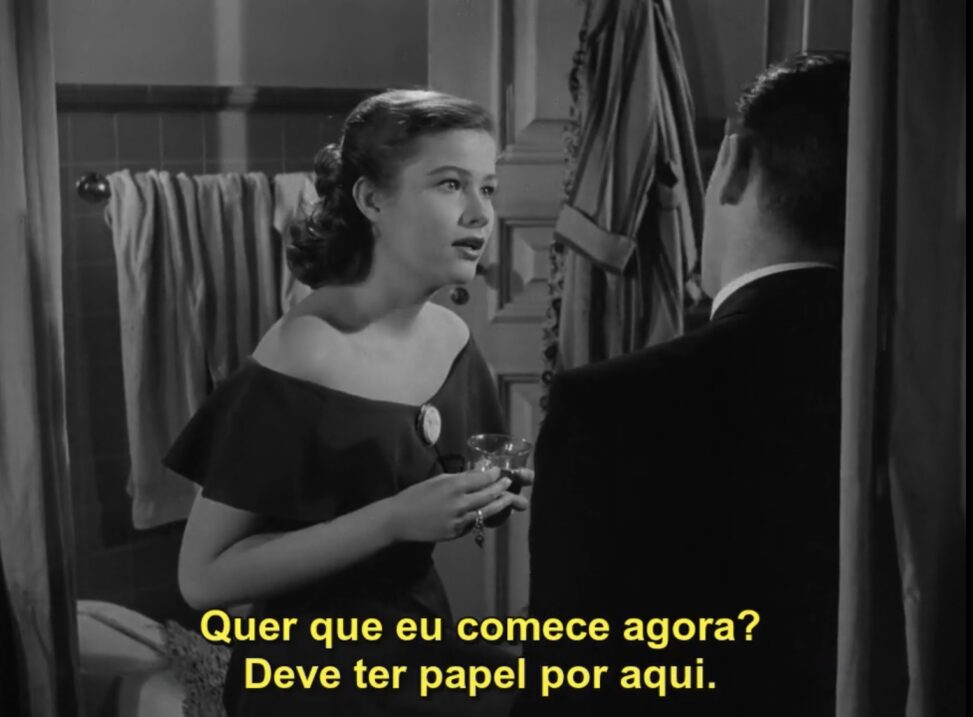Betty Schaefer is a Hollywood go-getter. She dreams of becoming a writer, yet she works as a Paramount script reader. This makes her the opposite of Joe. Betty still wants to make great, message-filled movies, and even if Joe has given up and is making hackwork, he thinks it will sell. Additionally, she’s skilled. She accuses Joe of writing fluff after giving one of his scripts a two-thumbs-down. Joe responds that she is one of those “message people” who “would’ve turned down “Gone with the Wind” if it had been offered to them”. Betty despises Joe’s hackwork, yet she senses his potential. Betty pursues the connection after seeing how well they got along during New Year’s Eve. Her film on teachers will include some of his screenplay, “Dark Windows”, saved. Joe initially resists, but he eventually leaves Norma’s house to meet up with Betty to begin working on the writing. They establish an authentic attraction and creative collaboration over time. This has two main challenges: Long-term, Joe’s friend Artie’s relationship with Betty, Artie’s girlfriend, seems unproblematic. Concerns center on Norma. She sabotages the relationship before it can take off, but Betty and Joe sneak a kiss before things become worse. Joe must explain to Betty that Norma keeps him (Sunset Boulevard, 1950).
Betty initially doesn’t care, but Joe acts like he’s had a great relationship with Norma and urges her to marry Artie, which makes Betty leave, even if she’s remorseful. Soon later, Norma kills Joe. Poor Betty. Betty may be a rising celebrity, but Norma can still pull people into her bizarre world. Betty is a rising star, while Norma is delusional. The American film business was very young (it had just been around for 40 years when Sunset was published); thus, Betty’s lengthy line of cinema personalities was unusual. Filmmaking runs in Betty’s family. Due to her forefathers’ tradition, Betty loves her world’s cardboard scenes and locales.
Betty knows Hollywood’s hypocrisy. She accepts it without complaint. Betty may have avoided corruption thus far due to her increased awareness. She sees through the uproar, unlike has-beens like Norma, who merely want it back. Hollywood glitter and charm affect Betty. She tells Joe that she got her nose fixed to act again, but her performance was poor. Thus, she understands Hollywood encourages people to change to become famous. Instead, she wrote and became a moviemaker to make meaningful films. Unlike Joe and Norma, she is the only character in the movie to survive the automobile disaster and do anything real. If Joe had joined her and not deceived Artie, he might have been able to get out of his situation (Sunset Boulevard, 1950). Betty Schaefer is a minor character in the “Small Players, Small Parts Dossier,” and she contributes to the plot and other people and ideas in the novel. Through her interactions with Joe Gillis and the pursuit of her ambitions, she sheds light on the complicated nature of Hollywood as well as the dreams of aspiring performers.
Reference
Will Straw, Introduction, Screen, Volume 52, Issue 1, Spring 2011, Pages 78–81, https://doi.org/10.1093/screen/hjq057

Provide Feedback